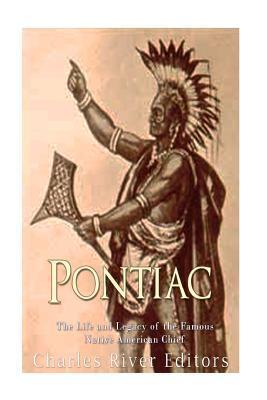Pontiac: The Life and Legacy of the Famous Native American Chief

Pontiac: The Life and Legacy of the Famous Native American Chief
*Includes contemporary accounts of Pontiac's War
*Includes online resources and a bibliography for further reading
"It is important for us, my brothers, that we exterminate from our lands this nation which seeks only to destroy us...Therefore, my brothers, we must all swear their destruction and wait no longer. Nothing prevents us: They are few in numbers, and we can accomplish it." - Pontiac
Throughout history, there have been men of war and men of peace, but few have actually had a war named after them. One of them was Pontiac, also known as Obwandiyag, an Odawa chief who left his mark on history by continuing the battle against the British after their official triumph during the French and Indian War. While modern historians question how important Pontiac's role was in shaping America's destiny, his leadership during Pontiac's War was seen at that time as important enough to warrant significant articles and even a few 18th century books. Since these books were written by the British, or at least men who supported their cause, the descriptions of Pontiac were often not complimentary. Likewise, 19th century authors tended to portray him as something of an evil genius who plotted against the British and then drove his people into battle. Not surprisingly, 20th century scholarship depicted him differently, portraying Pontiac as an important leader who had more influence over his own local band of Native Americans than over some vast army.
When it comes to Pontiac, a few facts are certain. For one thing, he certainly led the first major attack of Pontiac's War in May 1763, when he and 300 of his men attacked Fort Detroit in what is now the city by the same name. Unfortunately for his cause, Pontiac failed to gauge just how strong the British presence there was, and his attack was quickly repelled. On the other hand, he was not a man who gave up easily, so instead of retreating, he and his warriors would lay siege to the British stronghold. In the days that followed, word spread of his efforts, and in short order nearly 1,000 men from various tribes in the area had joined him. They remained camped around the fort throughout the summer before finally giving up the siege.
While Pontiac and his ever-growing band of men were laying siege to Fort Detroit, other tribes heard of his efforts to keep the fight going and began to attack other settlements and enclaves. Thus, even after he did give up on the fort, Pontiac
PRP: 79.36 Lei
Acesta este Pretul Recomandat de Producator. Pretul de vanzare al produsului este afisat mai jos.
71.42Lei
71.42Lei
79.36 LeiLivrare in 2-4 saptamani
Descrierea produsului
*Includes contemporary accounts of Pontiac's War
*Includes online resources and a bibliography for further reading
"It is important for us, my brothers, that we exterminate from our lands this nation which seeks only to destroy us...Therefore, my brothers, we must all swear their destruction and wait no longer. Nothing prevents us: They are few in numbers, and we can accomplish it." - Pontiac
Throughout history, there have been men of war and men of peace, but few have actually had a war named after them. One of them was Pontiac, also known as Obwandiyag, an Odawa chief who left his mark on history by continuing the battle against the British after their official triumph during the French and Indian War. While modern historians question how important Pontiac's role was in shaping America's destiny, his leadership during Pontiac's War was seen at that time as important enough to warrant significant articles and even a few 18th century books. Since these books were written by the British, or at least men who supported their cause, the descriptions of Pontiac were often not complimentary. Likewise, 19th century authors tended to portray him as something of an evil genius who plotted against the British and then drove his people into battle. Not surprisingly, 20th century scholarship depicted him differently, portraying Pontiac as an important leader who had more influence over his own local band of Native Americans than over some vast army.
When it comes to Pontiac, a few facts are certain. For one thing, he certainly led the first major attack of Pontiac's War in May 1763, when he and 300 of his men attacked Fort Detroit in what is now the city by the same name. Unfortunately for his cause, Pontiac failed to gauge just how strong the British presence there was, and his attack was quickly repelled. On the other hand, he was not a man who gave up easily, so instead of retreating, he and his warriors would lay siege to the British stronghold. In the days that followed, word spread of his efforts, and in short order nearly 1,000 men from various tribes in the area had joined him. They remained camped around the fort throughout the summer before finally giving up the siege.
While Pontiac and his ever-growing band of men were laying siege to Fort Detroit, other tribes heard of his efforts to keep the fight going and began to attack other settlements and enclaves. Thus, even after he did give up on the fort, Pontiac
Detaliile produsului








